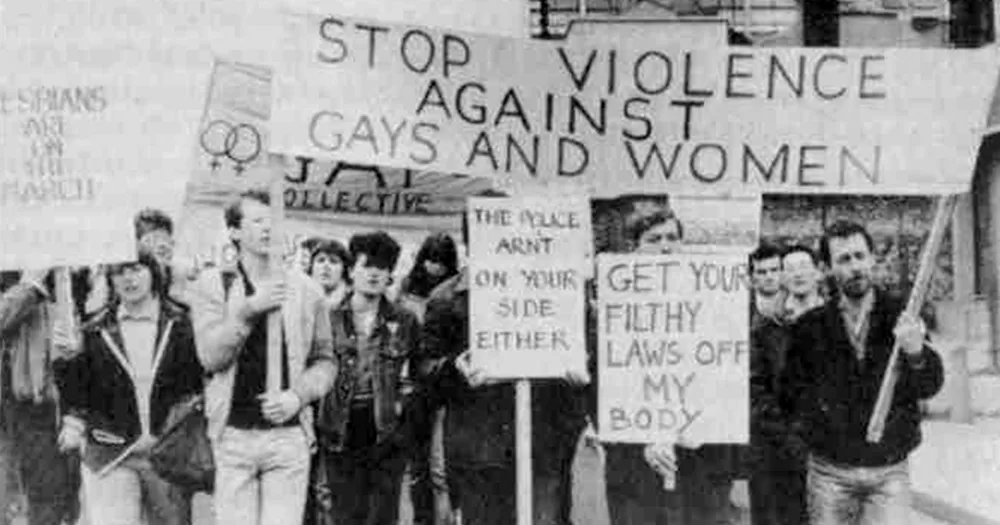Documents pertaining to the case that led to the decriminalisation of sexual activity between men in Ireland have shown that the State’s legal team considered using the AIDS crisis in its defence of the ban.
On July 26 this year, the Irish Department of Justice officially handed over documents relating to the decriminalisation of homosexuality in the country to the National Archives. Some of these files showed the efforts made by the State to preserve its ban on sexual activity between consenting men.
The case in question was brought to the European Court of Human Rights by David Norris, who argued that the Irish law criminalising same-sex activities was in violation of Article 8 of the European Convention on Human Rights, which protects the right to privacy. Norris won the case and the law was subsequently repealed in 1993.
As reported by The Journal, some of the files, dating back to 1983, show that the idea of using the AIDS crisis to argue against decriminalisation was initially discounted for lack of evidence in support of the argument. However, in 1985 the matter was raised again, with two members of the State’s legal team in favour of arguing that the ban on same-sex activity was necessary on health grounds.
Other documents show that the State’s legal team was preparing a defence for the case that argued that the emergence of the AIDS crisis should allow Ireland to keep its ban on same-sex activity. In a report dating back to 1985, one of the lawyers stated that relaxing “criminal sanctions on homosexuality would most probably have the result of increasing the level of such activity” and that in light of the AIDS crisis that was “a risk which no State should be forced to take.”
Among the files relating to the case, there were also records from a meeting held in 1985 and attended by members of the State’s legal team and a medical inspector from the Department of Health. The records show that the lawyers questioned the inspector to supposedly obtain material that would help them make the case that the repeal of the ban could represent a danger to public health. The medical inspector was “adamant that this view could not be upheld”.
The lawyers also sought to push the medical inspector to give them the “name of a medical man of international standing who would give evidence” that would strengthen their argument. However, the inspector explained that, because the best strategy to combat the AIDS crisis was to encourage people most at risk to come forward and speak to medical professionals, all international experts on the matter would be of the opinion that “making homosexual acts serious offences would work strongly against this policy”.
Subsequently, official opinions were sought from various government departments on whether the State should use the AIDS crisis to build its defence against decriminalisation. The Department of Health’s opinion clearly stated that the move would be “most unwise”. In a formal opinion issued in October 1985, Attorney General John Rogers stated that, from a legal standpoint, he was “of the opinion that AIDS should not be pleaded as defence”.
After reviewing all the evidence, the government ministers ultimately decided not to give their authorisation for the legal team to use the AIDS crisis as a defence in the decriminalisation case.
© 2023 GCN (Gay Community News). All rights reserved.
Support GCN
GCN is a free, vital resource for Ireland’s LGBTQ+ community since 1988.
GCN is a trading name of National LGBT Federation CLG, a registered charity - Charity Number: 20034580.
GCN relies on the generous support of the community and allies to sustain the crucial work that we do. Producing GCN is costly, and, in an industry which has been hugely impacted by rising costs, we need your support to help sustain and grow this vital resource.
Supporting GCN for as little as €1.99 per month will help us continue our work as Ireland’s free, independent LGBTQ+ media.

comments. Please sign in to comment.